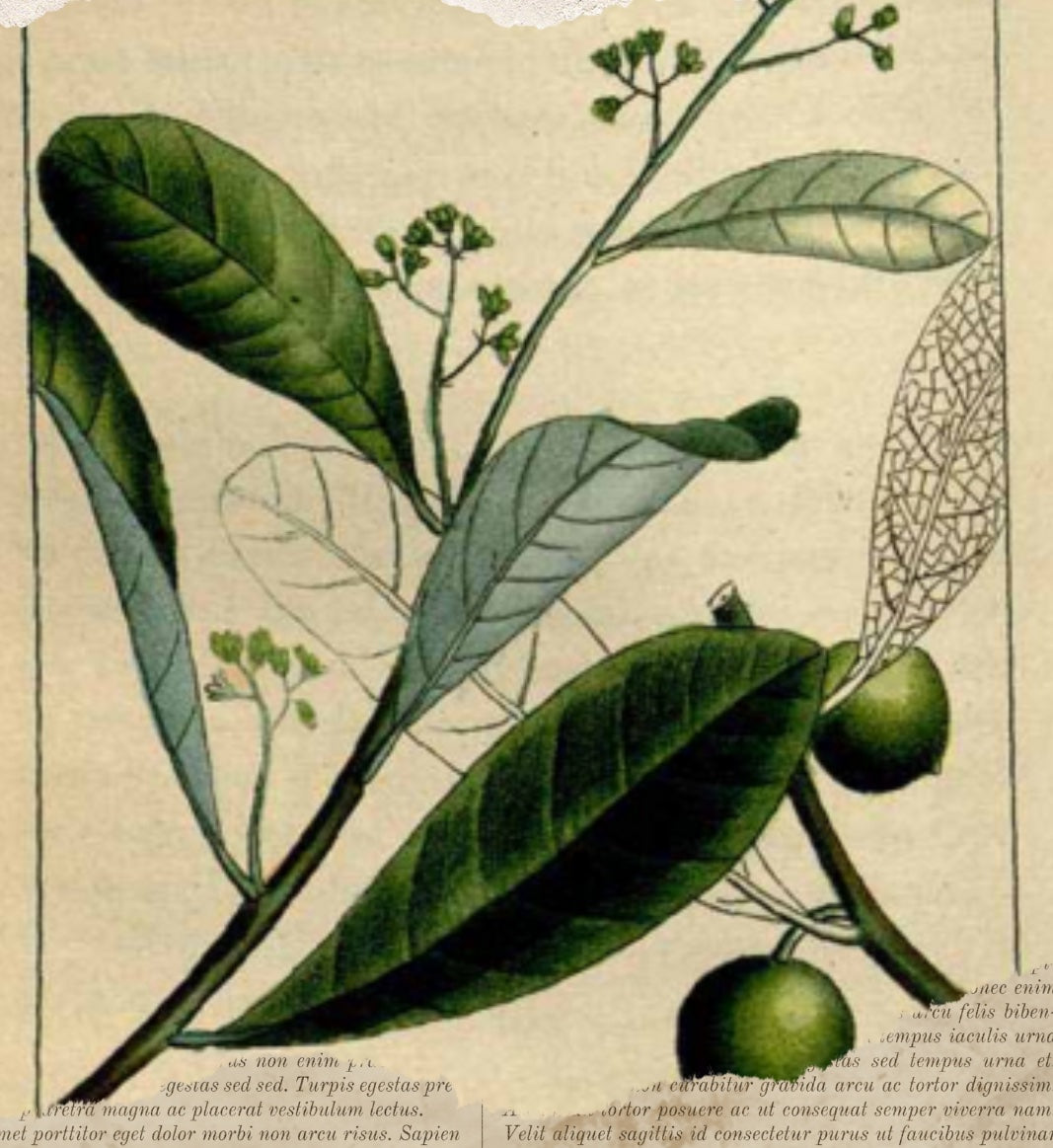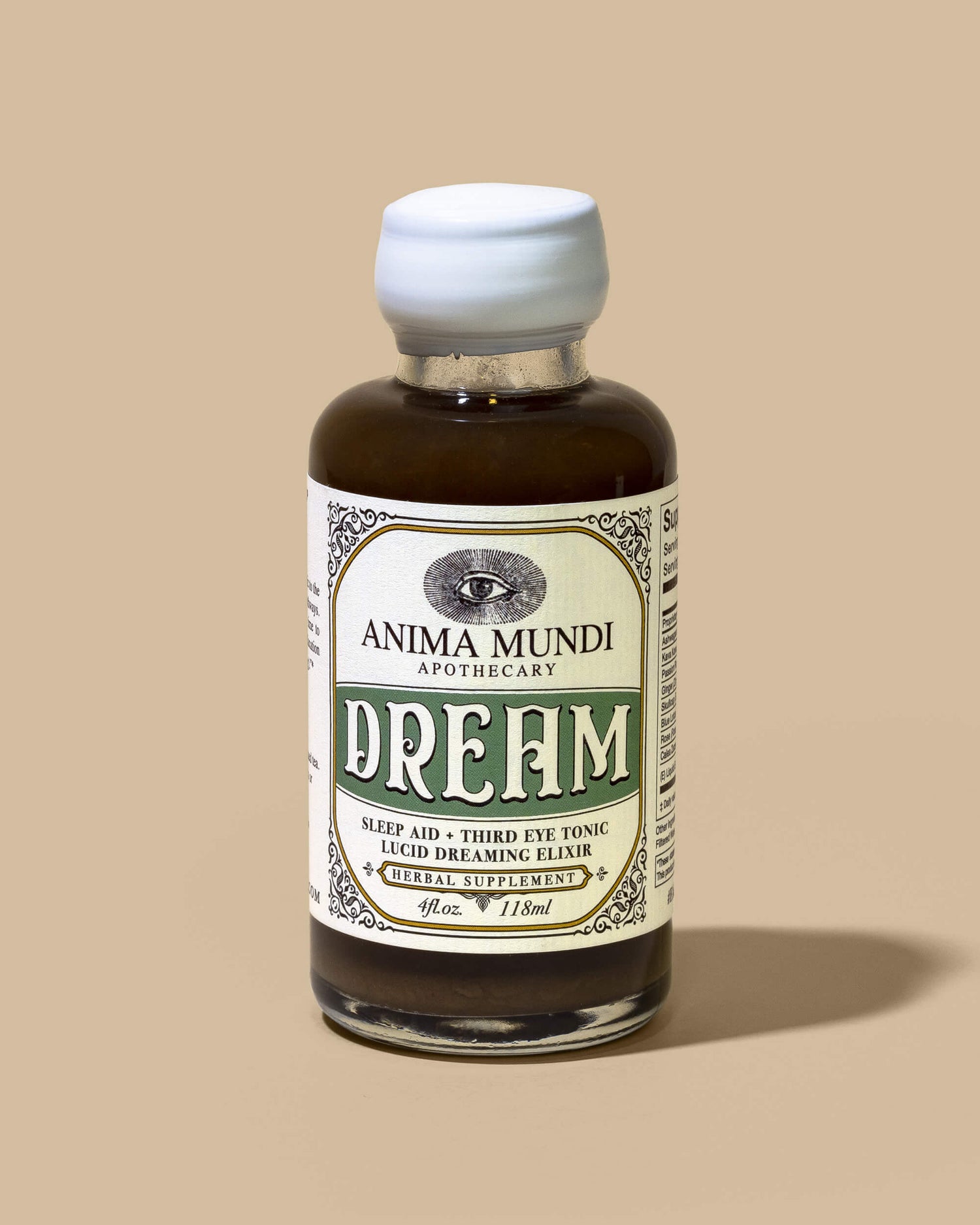Ravensara is an essential oil with many diverse uses and benefits, which has emerged over the last few years as an extremely important ingredient of numerous aromatherapy treatments. It is also an oil whose names have caused much confusion among aromatherapists. It is not “ravintsara”, which is the oil of the camphor tree, Camphora officinarum. Ravensara’s botanical name was Ravensara aromatica; however, recently the genus name of Ravensara has been changed, and the new official name of this plant is now Cryptocarya agathophylla. Its common name, which is easier to remember, is “clove nutmeg”, a member of the laurel family.
Clove nutmeg is a small to medium-sized tree endemic to Madagascar. Like many important medicinal and aromatic plants, its effectiveness and popularity have caused it to be classified as “near threatened”; this does not mean it is facing extinction, but that it may be vulnerable to endangerment in the near future. For this reason, it is very important that the oil be purchased from distillers who are actively involved in regenerative and sustainable production of the oil. Fortunately, it is the leaves that are distilled, which means that harvesting does not destroy the tree.
Like many species that have entered into aromatherapy, Ravensara has a history of being used first in its whole plant form, as part of traditional African medicine. The leaves of the tree are mildly camphoraceous, similar to Eucalyptus, and the essential oil is steam distilled out of freshly harvested leaves. The oil has a clear to pale yellow color, a thin consistency, and a medium to strong aroma.
The aromatic profile of Ravensara is complex and unique. In perfumer’s language, it is a top to middle note that is fresh, clean, herbaceous, light, camphorous, spicy, woody, and slightly fruity. It is very pleasant and has a great compatibility with almost any type of essential oil blend. Its aromatic profile is perhaps closest to Eucalyptus, but more balanced, pleasant, and gentle.
Ravensara is a highly versatile oil with many benefits. It specifically treats the respiratory, circulatory, musculoskeletal, nervous and immune systems, and has many therapeutic applications.

Ravensara’s Therapeutic Actions
Respiratory System
Ravensara has an affinity for the respiratory system. Unlike other essential oils primarily used to address respiratory ailments such as Eucalyptus, Pine, Juniper, and others, Ravensara is mild and can be used for children. The essential oil is also effective in the treatment of chronic respiratory diseases such as asthma. It can also be administered in inhalations and aerosols to treat asthma and other respiratory diseases.
In the respiratory system, Ravensara helps clear colds and flus; it is an expectorant that decongests the lungs and opens the sinuses; it helps in the treatment of respiratory infections, boosts oxygen intake, helps control asthma, and calms coughs. Its mildness and therapeutic compatibility makes Ravensara a great alternative or complement to Eucalyptus or Tea Tree oil.
Some highly effective essential oil blends include:
- One part Ravensara, one part Thyme, two parts Eucalyptus, two parts Lavender
- Equal parts Ravensara, Tea Tree and Lemon
- Equal parts Ravensara, Tea Tree and Eucalyptus
- Equal parts Ravensara, Laurel and Eucalyptus
These blends can be used for diffusing and in steam inhalation.
To make a blend for a chest rub, mix 4 parts Ravensara, 1 part each of Chamomile, Geranium and Lavender; add 5 drops to 1 tbsp carrier oil or salve.
For rapid relief of respiratory symptoms, put two drops of oil on the palms, rub them together, bring them to your nose and face, and inhale deeply. Not only will this offer coughing relief and respiratory support, its antimicrobial properties will cleanse your hands, reducing exposure to further sickness.
Immune System and Antimicrobial Powers
Essential oils in general are strongly antimicrobial and immune supporting because they are the molecular immune system of aromatic plants. Ravensara is an excellent example of this, because it is a powerful antimicrobial agent that simultaneously supports respiratory immunity. It is renowned in aromatherapy as an outstanding antiseptic, antiviral, antibacterial, and anti-infective oil.
Ravensara is strongly antimicrobial, but without being harsh or caustic like Oregano or Cinnamon, so it is safer overall. The oil is rich in monoterpenes, which contributes to its potent antibacterial and antiseptic properties. Ravensara is especially rich in limonene, which makes it chemically a relative of Palo Santo, and alpha and beta pinene, which makes it a relative of conifer trees.
Ravensara has impressive antimicrobial characteristics that can help fight pathogens that cause infections and illness. It is an excellent oil to diffuse in the home to clear air-borne microbial pathogens, including mold. For this purpose, it blends well with virtually any other air purifying essential oil, but a few top choices would be Eucalyptus, conifers, Frankincense, Palo Santo, Tulsi (Holy Basil), and Lavender.
Ravensara can be used in the diffuser or in chest rubs not just for treating respiratory infections, but also for preventing them. It is regarded as an important tonic for speeding up recovery as well as for strengthening general immunity and reducing convalescence after repeated or debilitating infections. An excellent blend for that purpose is equal parts of Frankincense, Ravensara, Palo Santo and Orange, used in a diffuser.
One of the most important uses of Ravensara oil to emerge over the last few years is as an antiviral, specifically for Herpes zoster, which causes shingles. For this purpose, it can be blended equal parts with a milder floral oil such as Geranium, or a stronger antimicrobial oil such as Tea Tree, diluted in a carrier oil such as Coconut or Jojoba, and applied on the lesions. This treatment can also be done by putting 5 drops of the blend on a cool moist cloth for a compress. These methods work well for outbreaks of other herpes viruses as well; the applications will reduce pain and accelerate the healing process.
Overall, Ravensara is an energizing and stimulating oil recommended for exhausted, convalescent, infection-prone, and immune-deficient people.
Musculoskeletal System
Ravensara is a highly effective natural pain-relieving oil to have in your home pharmacy. It alleviates muscular aches and pains, relieves stiff joints, aids in arthritis and rheumatism, is simultaneously soothing and relaxing, antispasmodic and anti-inflammatory, and stimulates improved circulation. It is excellent for overtired, overwork muscles and aching joints.
For these purposes, it can be added to a bath, dispersing 1 – 2 drops only on the bathwater, or used in a body oil before or after the bath. For an uplifting and pain relieving massage or body oil that comforts the muscles and joints, it combines well with other analgesic and anti-inflammatory oils, such as Chamomile and Lavender, in a carrier oil such as Argan.
Circulatory System
When used in aromatherapy, massage or bath, Ravensara oil has stimulating properties on peripheral circulation, improves lymph flow, and fluid stagnation. In addition to its use in massage for the muscle and joints, ravensara is also excellent for lymphatic drainage. When used for abdominal massage, it promotes local circulation and aids in both prostatitis and soothing menstrual pain.
Nervous System and Energetic Powers
Ravensara has unique properties of being simultaneously tonifying, relaxing, soothing and refreshing, which helps support the normal functioning of the nervous system. It helps in exhaustion, is calming to anxious nerves, has relaxant properties, relieves stress, helps restore emotional balance, and aids in stress-related sleeping disorders.
In aromatherapy, Ravensara has noticeable energetic effects, including grounding and balancing the mind and emotions. It helps protect the mind from negative and unproductive thoughts, boosts mental energy and increases focus and concentration. Psychologically, it is reported to create uplifted moods and an increased sense of security.
We invite you to (re)discover Ravensara’s strengthening and revitalizing effects on the mind and spirit. Our sustainably cultivated Madagascar Ravensara oil is produced by an inspiring distiller who plants over 50,000 trees each year. Operating their distilleries in the field to reduce carbon emissions, they prioritize equitable exchange to positively impact the communities with whom they collaborate. The school they built in Loharano now teaches over 70 students, from ages 6-15.

















